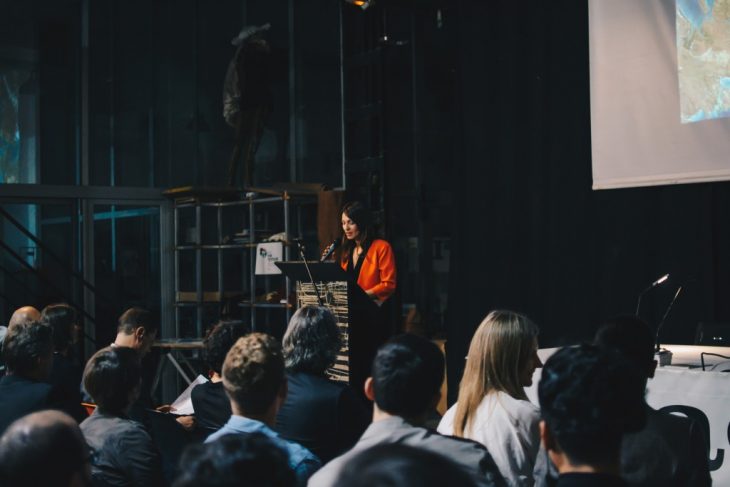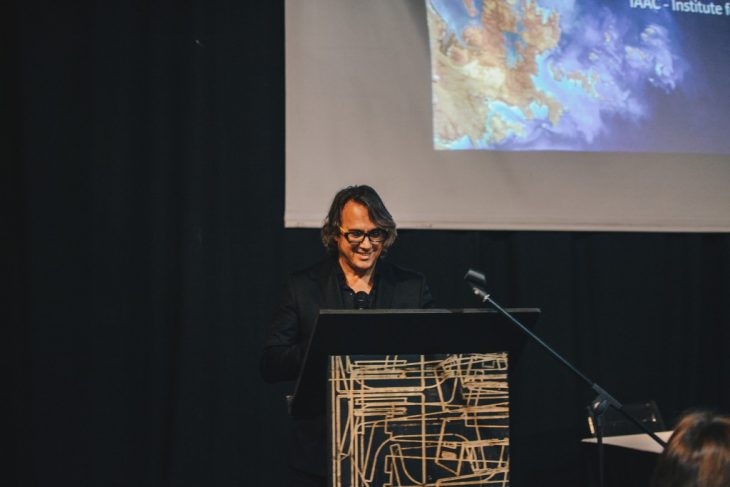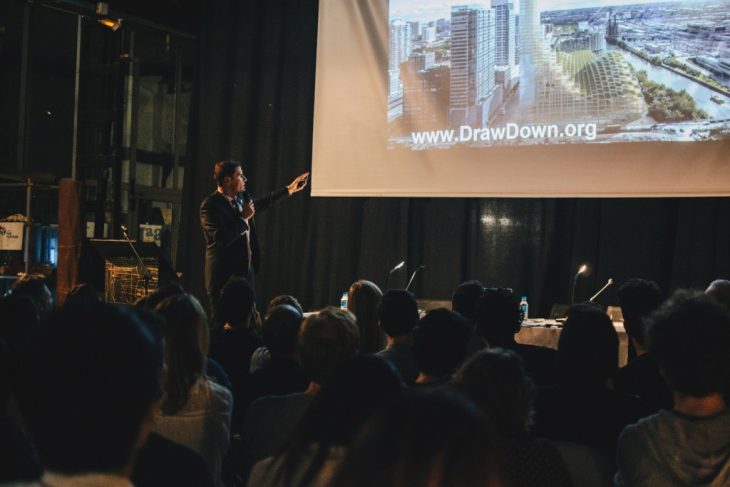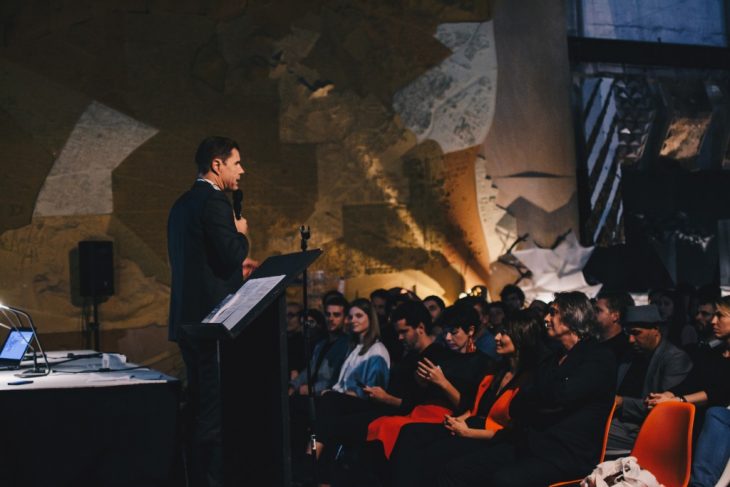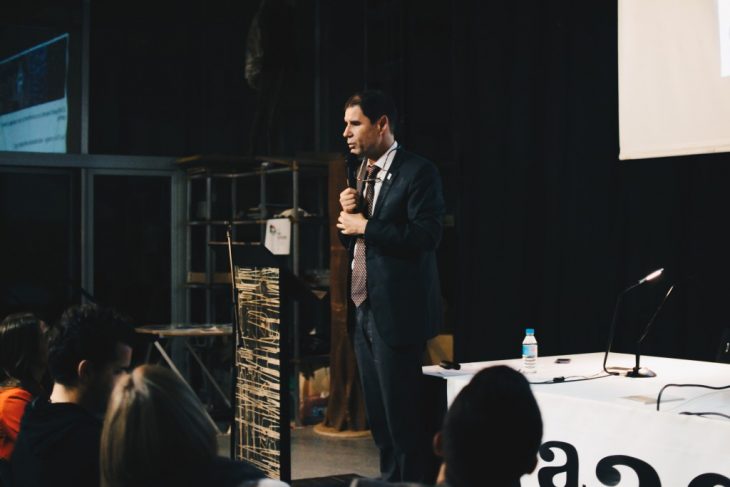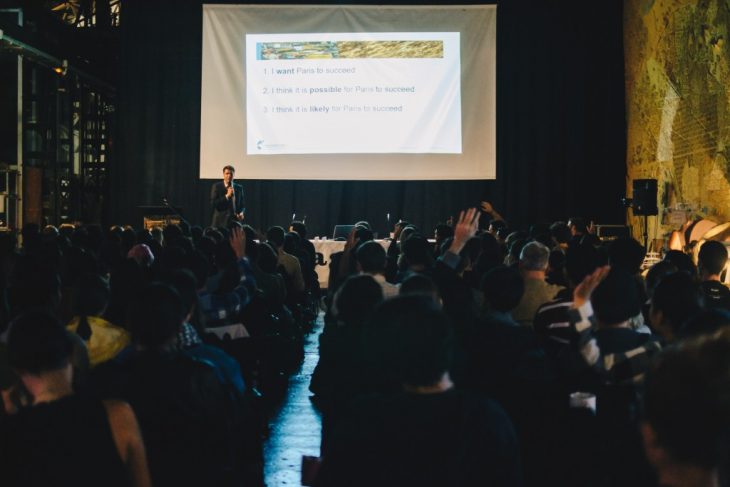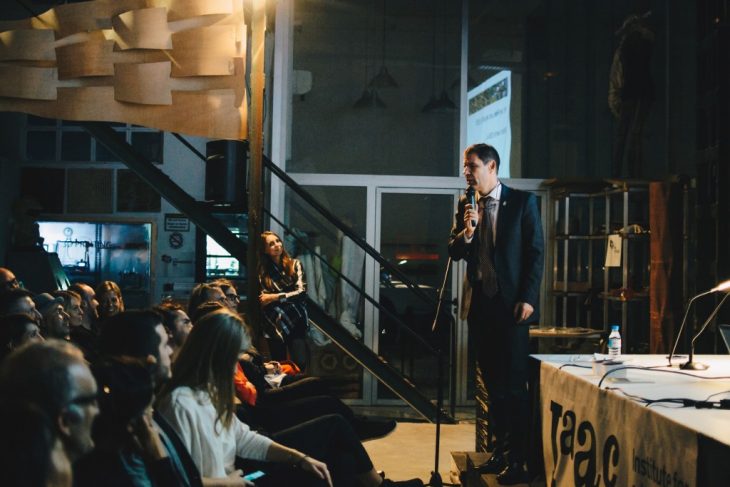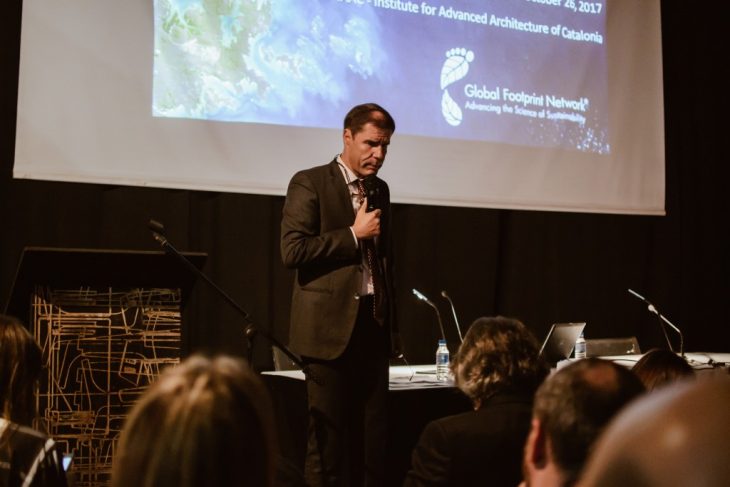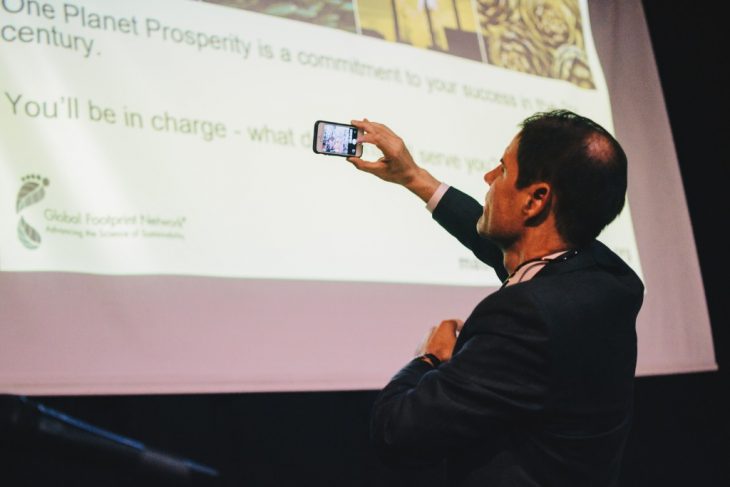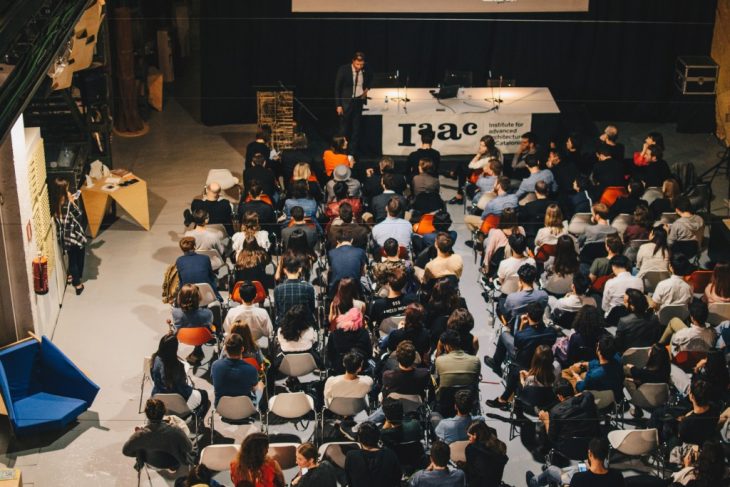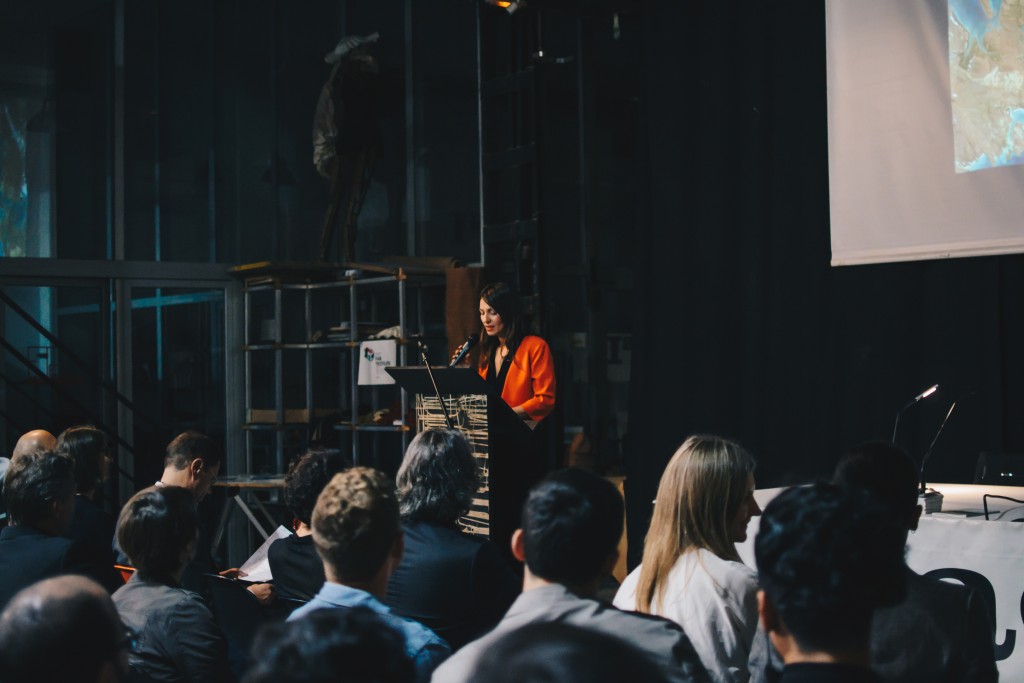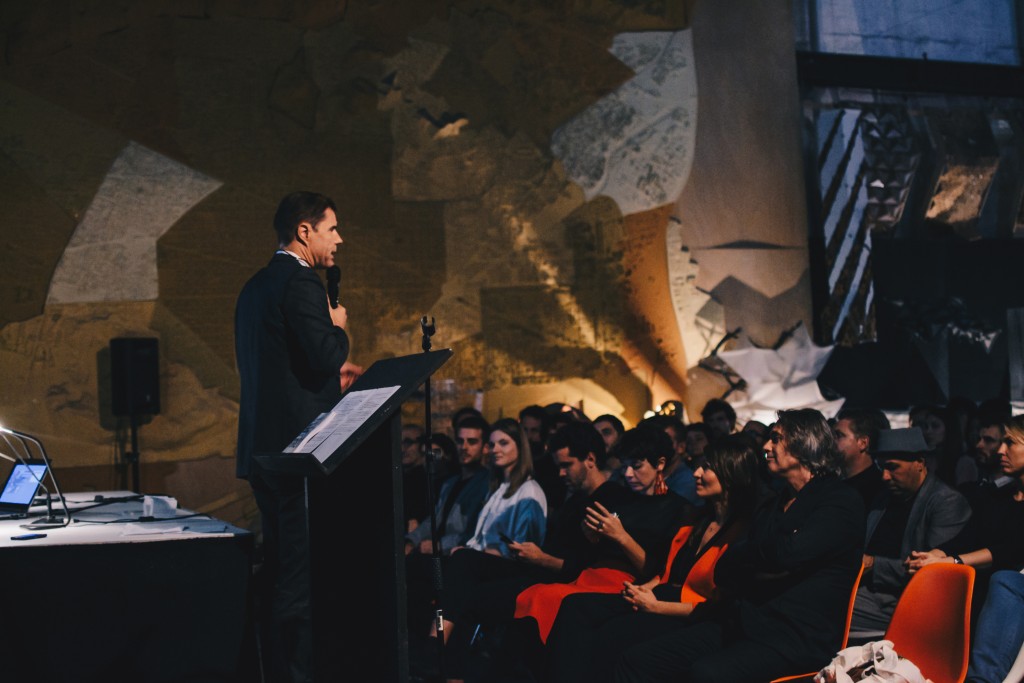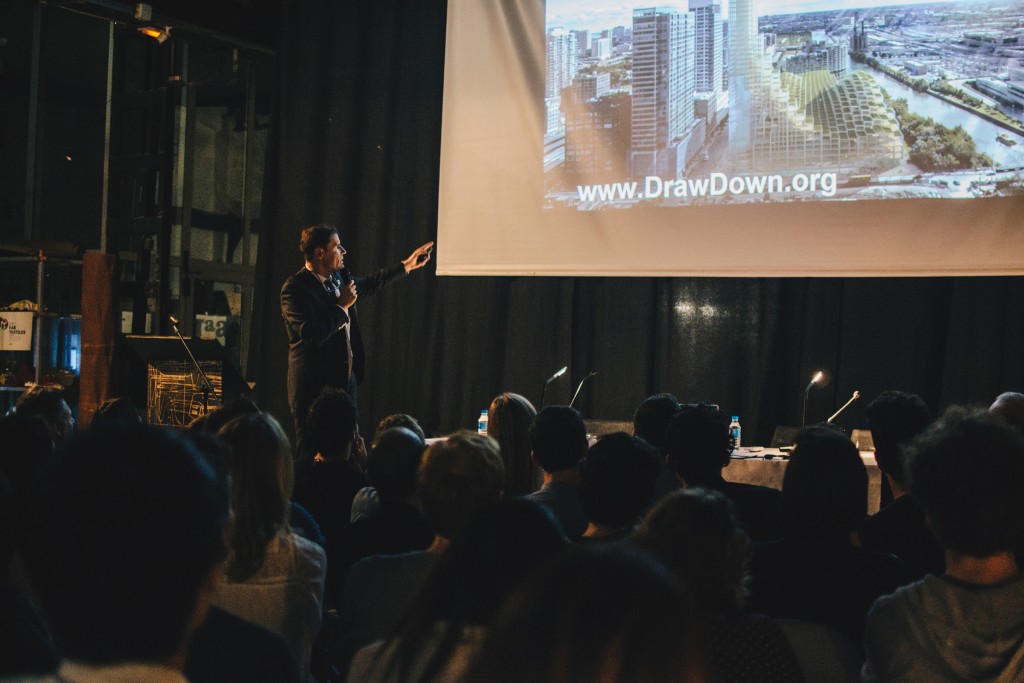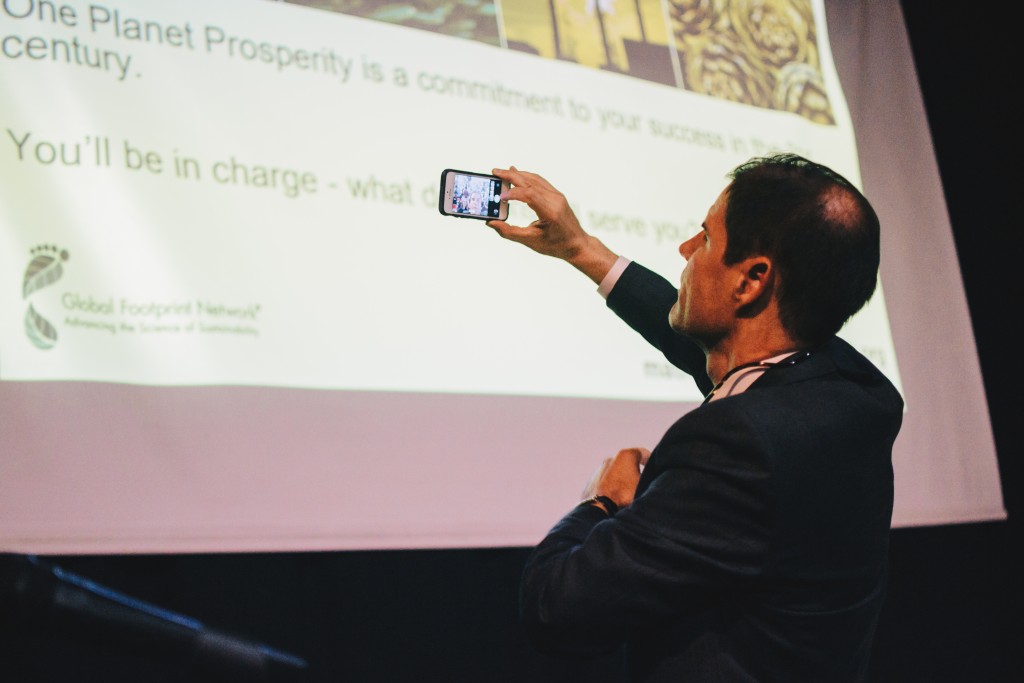Mathis Wackernagel of the Global Footprint Network Opens IAAC Lecture Series 2017/18
Last Thursday evening we had the pleasure of hosting Mathis Wackernagel, co-creator of the Ecological Footprint and CEO of Global Footprint Network, for the Opening Lecture of this year’s 2017/18 IAAC Lecture Series.
Opening the lecture Mathilde Marengo, IAAC Academic Coordinator, who gave some words of welcome and then invited Areti Markopoulou, IAAC Academic Director, whom officially kicked of the Opening Ceremony, welcoming the 200 people present in the audience, among which the 140 new students from over 40 different countries, representatives of the local architecture community, both professional and academic, and the IAAC faculty and staff. She then passed the word to Willy Müller, IAAC Co-founder and Director of the Urban Sciences Lab, who gave some words of welcome to our guest Mathis Wackernagel.
In his lecture, Wackernagel discussed the role of cities in the battle for sustainability. In 2050 cities will house 70-80% of the world population, meaning that city populations will most likely double from now to then. This confronts cities who want to be resilient and successful with a resource challenge: they need to find ways to operate and provide for thriving lives within the average budget of nature.
Mathis Wackernagel is co-creator of the Ecological Footprint and CEO of Global Footprint Network. He completed a Ph.D. in community and regional planning with Professor William Rees at the University of British Columbia, where his doctoral dissertation developed the Ecological Footprint concept. Mathis has worked on sustainability with governments, corporations and international NGOs on six continents and has lectured at more than a hundred universities.
The Global Footprint Network is an international think tank promoting and driving sustainable policy decisions in a world of limited resources. Together with its various partners, Global Footprint Network (GFN) coordinates research, develops methodological standards, and provides decision makers with a menu of tools to help the human economy operate within Earth’s ecological limits.
